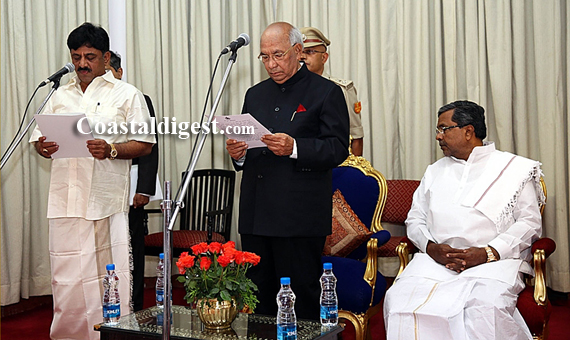
Bangalore, Jan 1: Chief Minister Siddaramaiah Wednesday expanded his cabinet, inducting party legislators D.K. Shivakumar and R. Roshan Baig. For over seven months, the chief minister resisted pressure from them to be made ministers as they face corruption charges.
While Shivakumar faces charges of illegal mining, Baig is accused of land grabbing.
Shivakumar and Baig were administered the oath of office and secrecy by Governor H.R. Bhardwaj at his official residence, Raj Bhavan, in Bangalore city centre in the presence of Siddaramaiah, Karnataka Pradesh Congress Committee president G. Parameshwara and several ministers.
The two are six-time Karnataka assembly members, Shivakumar from Kanakapura in Ramanagaram district about 55 km from here, and Baig from Bangalore's Shivajinagar constituency which has a large Muslim and Tamil-speaking population.
With the inclusion of Shivakumar, a prominent leader of the Vokkaliga community, and Baig, the ministry strength goes up to 31, leaving three vacanices.
Karnataka can have a 34-member ministry, including the chief minister.
Though freedom fighter H.S. Doreswamy, whom Siddaramaiah holds in high esteem, and several others had been opposing making the two ministers, Siddaramaiah has gone ahead as the Congress high command gave its nod to the move, in view of Lok Sabha elections in April-May and the influence Shivakumar and Baig have over their communities.
Shivakumar and Baig have denied the allegations against them, claiming that the charges were part of a "political conspiracy" to keep them out of the ministry.
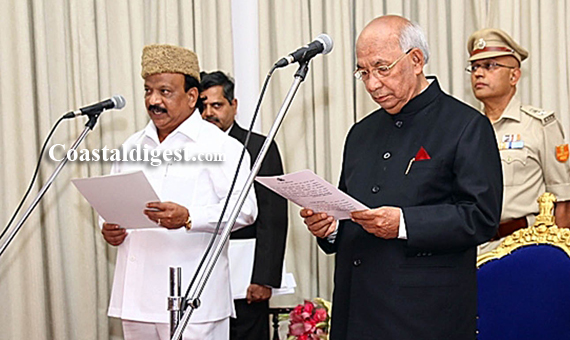
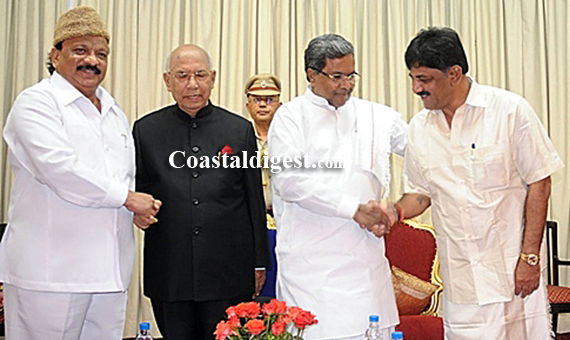
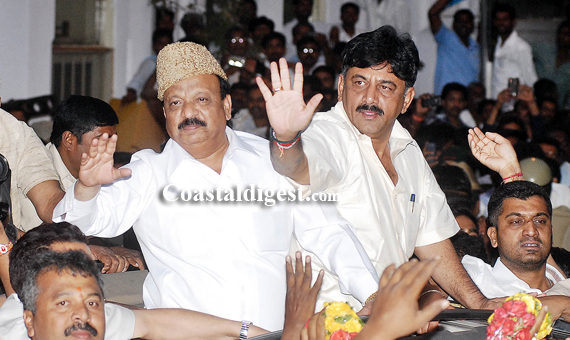
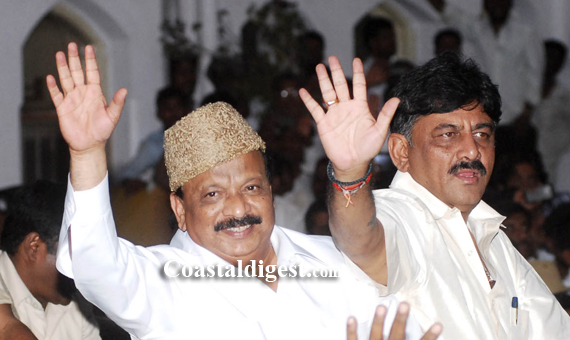
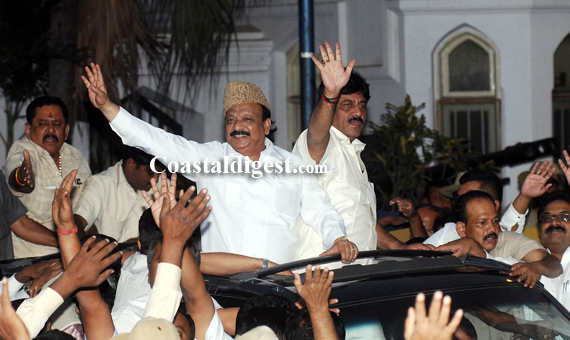
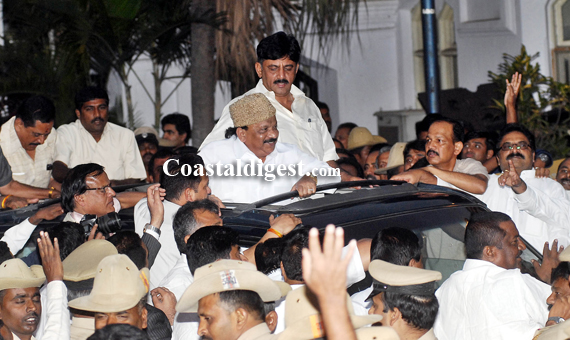









Comments
Add new comment